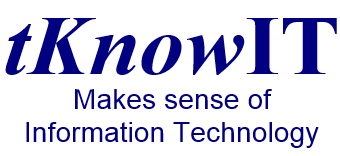Passkeys could improve the way you work, forever
Back in May, we heard there would soon be a successor to the password – the Passkey.
Now, we’re hearing that Apple will start rolling out Passkeys in the next few months in iOS 16. And we’re excited.
Though it’s caused a bit of confusion. Apple is going to great lengths to market the Passkey, and understandably, people have assumed that it’s a feature exclusive to Apple.
That’s not the case.
In fact, Passkeys will be used in a joint effort to boost online security by Apple, Microsoft and Google. The reason Apple is promoting this new feature so hard is to get the message out there.
Microsoft and Google are also keen to spread the word so that people understand how Passkeys work.










